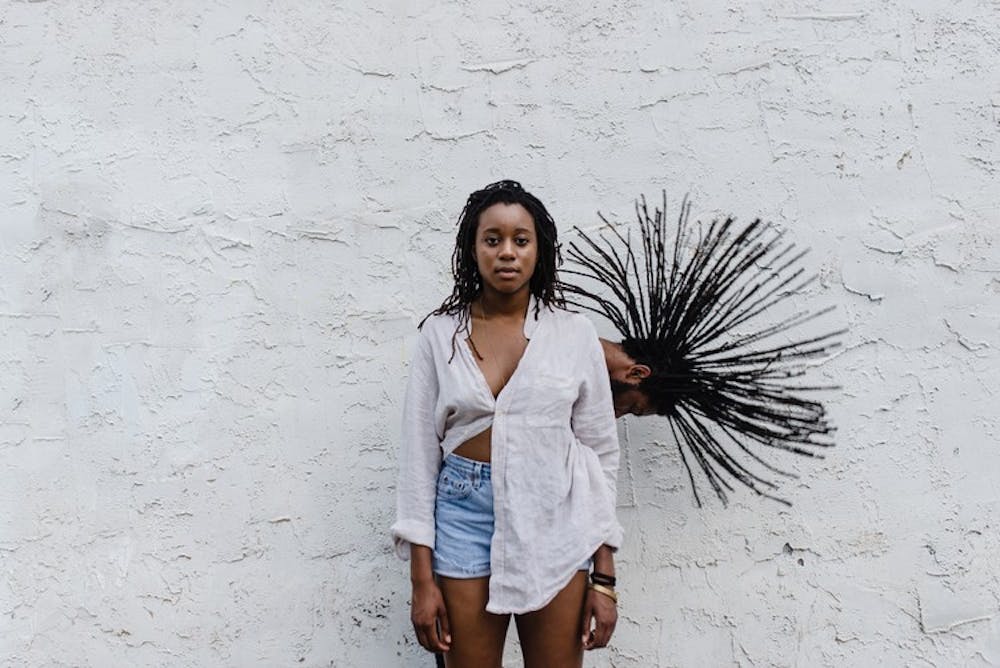You can find College junior Araba Ankuma snapping more than your basic LOVE statue Instagram shot with her camera.
From photos of campus events to her own photographic art, Ankuma has made herself known among her peers as a passionate photographer.
“I want to capture moments that look different and feel different,” Ankuma said. “I want to get at something that hasn’t been experienced yet by that viewer.”
Photos can give the wrong impression if they only address one side of the story, Ankuma says. One prevalent issue she sees in the world of photography today is “poverty porn” — when photographers, especially in Africa, only take pictures of the impoverished population, giving viewers a misrepresentation of a place as a whole.
Ankuma said that the reason you don’t see many pictures of middle class Africans is because it is not the norm to take pictures of people during their everyday lives, and it can also be seen as disrespectful. On a trip to Ghana, she did not take many pictures so as to respect the local cultural norms.
On campus, Ankuma is best known for her work in capturing events and photography for various groups such as Arts House Dance Company.
“She gets a lot of different angles and does a lot of cool editing things,” Arts House member and Wharton senior Kelly Furukawa said. “Her work is different from anyone else’s.”
As a dancer herself in Strictly Funk, Ankuma is able to combine two of her passions.
Ankuma said that she likes to dress similarly to the people at the event and uses her small stature to move around unnoticed to get the best possible angles. She likes to take photos of the people who aren’t necessarily the most prominently featured and reveal parts of the situation that others may not see at first. She aims to capture what she describes as the “sincerest photos possible with the candid photos that I do.”
One of her most recent projects, “Locs,” attempted to display the beauty of natural black hair and the urban atmosphere outside of the “Penn Bubble.”
At first, Ankuma did not have a plan for the photo shoot. What inspired her was the movement of her friend College sophomore Ngozi Olojede’s dreadlocks.
“I love Araba so when she reached out to me saying she wanted to do an entire shoot around my and Ngozi’s locks, I was excited,” College junior and Daily Pennsylvanian columnist Titus Adkins said. “She said she just wanted to play around at first because she didn’t know exactly what she wanted to do, as is the case with a lot of great art.”
Olojede and Adkins have both had their dreadlocks since they were small children and kept them ever since.
“I am very passionate about wearing my hair natural,” Olojede said. “I would love to think that I could encourage [people], black women especially, to feel like their natural selves is more than good enough.”
The pictures turned out to have an intimate element, something Ankuma was not expecting given that Adkins and Olojede had never met prior to the shoot. But the chemistry was tangible.
“I was shocked at the way that they were willing to hold onto each other,” Ankuma said.
The two are holding each other with their shirts off in several of the shots. “Some of my friends asked me if I was uncomfortable, but I’m generally free with my body, and I’m not shy at all,” Olojede said.
Ankuma is passionate about showcasing the human body as a work of art. She doesn’t consider her art to particularly exemplify any race or culture, but rather the beauty of the human body in general.
This idea has motivated her current project, “Solidarity.” The collection of photos will feature students from different ethnicities and backgrounds in the nude. “[They come] to the shoot who they are, without any clothes or any makeup or anything that they could hide from, and I was able to get at their essence in that way,” Ankuma said.
The idea is to show that we are more alike than we are different. “As much as we are diverse, we are the same essentially,” Ankuma said.
To Ankuma, the most powerful part of photography is being able to use one image to send a message. “If [photographers] can create and capture things based on one photo,” Ankuma said, “if one image shocks the viewer to their core, to me it’s so important.”
She plans to make the project into a stop motion video. She enjoys working with movement and the human form, so this project combines the two elements.
In the future, Ankuma hopes to use her skills in photography to bring to light issues of social injustice. She hopes that with her photos she will be able to tell a story.
“The hardest part of being a photographer is getting across what you see,” Ankuma said. When designing her photography website, Ankuma’s goal was to make each image powerful on it’s own.
“I don’t have a lot of images on one page; it’s very minimalist,” Ankuma said of the website.
“I think Araba’s work represents a lot. I think it shows the beauty that is within the Penn community that may not receive the light it should,” Adkins said. “Araba represents the dream of Penn, someone who has a goal and a dream and is going out and actually putting in the work and taking the steps to make her dream a reality.”
Correction: A previous version of this article incorrectly stated that Araba Ankuma is a College sophomore. She is actually a College junior. The DP regrets the error.



